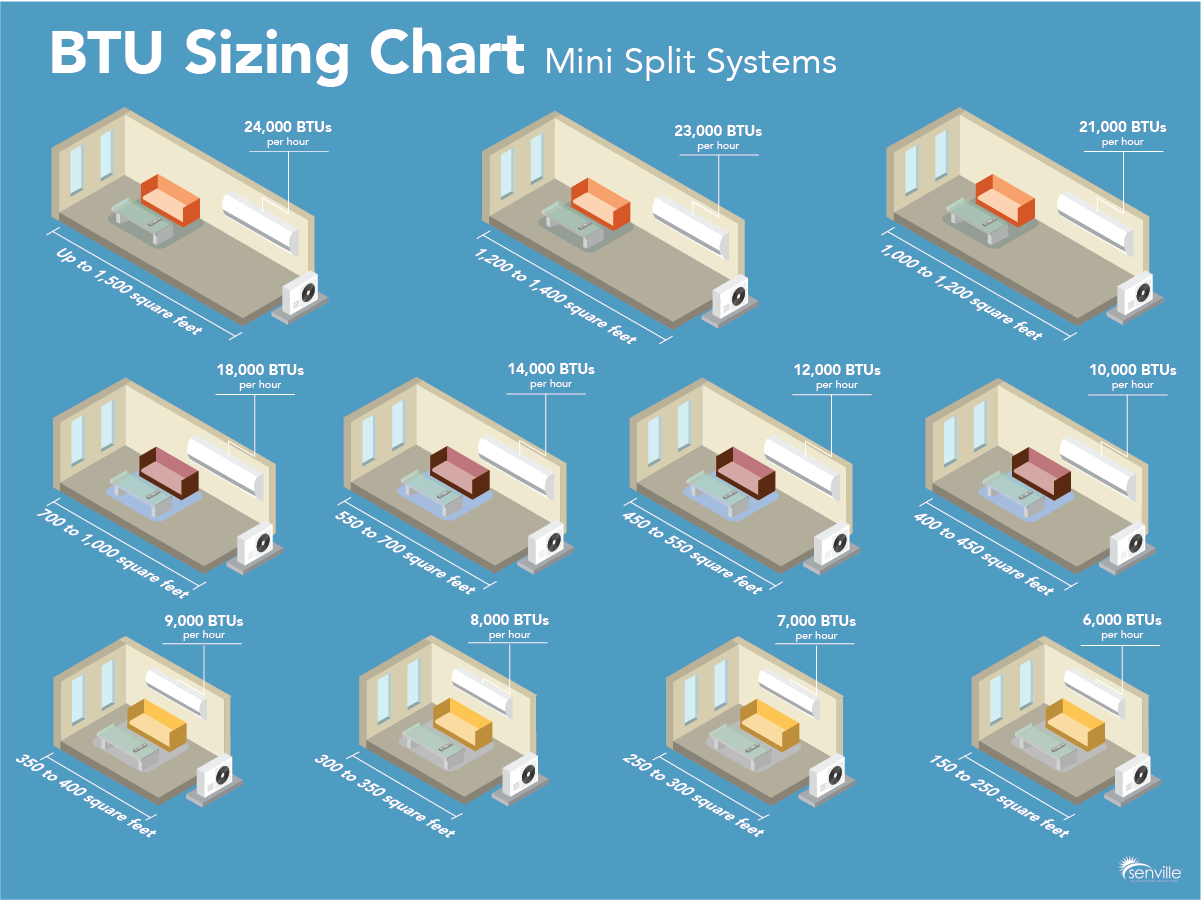

Using this data, I decided to see how the rules of thumb I mentioned above compared to this actual heating load data.įor every home in the dataset, I ran the calculation based on each of the rules of thumb I mentioned above.
#Sizing hvac unit calculator manual#
It’s a great dataset because the state requires Manual J and blower door tests (which we’ll explain below).

So this contractor rule of thumb would tell us that we need 48,000 BTUs.īut these rules of thumb are almost always wildly inaccurate.įor the last few years, the Massachusetts Clean Energy Center has been publishing data on the heating loads of homes in the state. One “ton” in heating-speak is equal to 12,000 BTUs. If you have a 2,000-square-foot home, this rule of thumb suggests a 4-ton system. For decades, most contractors have sized HVAC systems, like heat pumps, by dividing the total square footage of a home by 500 to estimate how many tons of heat a home needs. If you have a 2,000-square-foot home, this rule of thumb suggests you need a 60,000 BTU heat pump.Ĭall up a contractor and you’ll probably hear something similar. If you Google “heat pump calculator,” you’ll probably find a rule of thumb like this: “You need 30 BTUs of heat for every square foot of living space you want to heat or cool.” Besides the higher upfront cost, an oversized unit will need to be replaced sooner than a properly sized unit, since kicking on and off constantly leads to more wear and tear. Oversized heat pumps also come with financial costs. If it’s constantly kicking on and off, you’ll end up with hot and cold spots instead of a steady temperature throughout your home. The more time a heat pump runs, the more time it has to distribute warm or cool air throughout your home. An oversized system will spend most of its time off, allowing moisture to build up.īut even if you live in a dry climate, an oversized system will result in a less comfortable home. A properly sized system will constantly pull moisture from the air, leaving you comfortable and your home mold-free. In humid parts of the country this is even more of a problem, because heat pumps also act as dehumidifiers. But if you oversize your unit, even a variable speed model will kick on and off frequently, as its lowest speed might still overheat your home. Rather than kicking on and off constantly, variable speed heat pumps can provide a steady comfortable temperature. AC article, most heat pumps have variable speed motors, meaning they adjust how much heating or cooling they provide based on the temperature outside. The problem with oversizingĪs we covered in our Heat Pump vs. Though, make no mistake: a properly sized heat pump definitely works in cold climates. If you have backup electric resistance heat, also referred to as heating strips, your home will stay warm, but you could spend a fortune on electricity. Undersize your heat pump and it will struggle to keep your home warm on the coldest days. Incorrectly sizing a heat pump comes with some major problems. But many homeowners, and even experienced installers, don’t get it right.


 0 kommentar(er)
0 kommentar(er)
